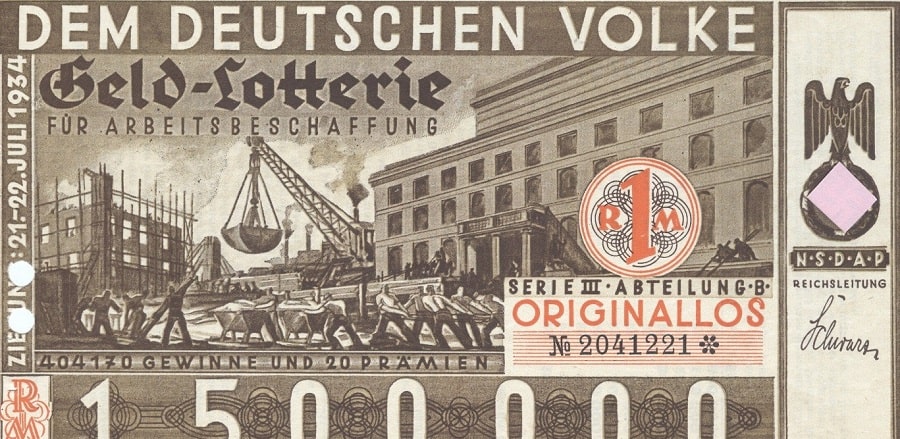
Some of the history of lotteries
The lottery is a popular pastime for people around the world. Lottery sales in the US have reached $71 billion, up to 70 percent of all adults in the UK regularly buy tickets, and statistics show that every US resident purchased the biggest lottery jackpot in history in 2016.
In Russia, the way of instant earnings is also popular, albeit not on such a scale. 27 per cent of adults in the country had participated in the lottery at least once by 2018. But where did they come from? In this piece, we’ll talk about the history of lotteries and give you the most interesting facts about them from all over the world.
Antiquity
Some people think the ancestor of lotteries was drawn in the Old Testament. Moses divided the land among the people by drawing lots. At that time the people were rewarded for an unspecified action. Some received a larger share of the land, some a smaller share.
The myths of ancient Greece are another source in which you can find something in common with lotteries. The principle of the game is the same – random stones are pulled from a golden helmet where the winner wins a duel with Zeus and the chance to die with dignity. The Cloroterion (a kind of lottery) was used by the Greeks to choose people for leadership positions.
The Age of Rebirth
The first lottery, according to sources, was held in the Belgian town of Bruges in 1446. And already then people gambled with money. People bought tickets, and chose a winning one from the pool. The idea instantly spread all over Europe. In Russian, the word “lottery” originated in Dutch, which, in turn, was taken over from Belgian.

In January 1449 the Ambrosian Republic of Gold held the first lottery in Italian history. At that time, funds were raised for the war with Venice, and in Genoa, bets were made on the positions of people in the Great Council, where only 5 of 90 candidates got.
France
The failure of Francis I’s attempt to hold a lottery prompted several nobles to try and set up a counterpart in France. This failed due to the high price of tickets, after which the lottery was banned.
The financial crisis forced the country’s leaders to repeal the outdated ban. Then Voltaire and Charles-Marie de la Condamine took advantage of the organisers’ slip-up. They calculated that by buying up all the bonds their chances of winning the lottery would increase and they were right. Creating a syndicate, the French bought the tickets and won the jackpot.
England
The lottery came to England on a huge scale. Queen Elizabeth I planned to use the lottery proceeds to modernise the navy. But people were extremely reluctant to invest in the new lottery. As a result, instead of the declared jackpot of 55,000 euros, the organizers paid out only 9. The British had to take a loan for the modernization, and Elizabeth decided to ban the lottery on the territory of the kingdom.
The lottery returned to England after the Queen’s death. The UK National Lottery, which was launched in 1694, lasted until 1826.
Spain
One of the oldest lotteries now in operation originated in Spain. Despite its late heyday (early 18th century), by 1812 they’d launched the Lotería de Navidad in Cadiz. The annual Christmas lottery is still active today.
Its distinctive feature is the announcement of the numbers. They are sung by the children of one of Spain’s most prestigious schools.
USA
Despite popular belief that the lottery was invented in America thanks to Europeans, the first record of its existence in a new light goes back to the Indians. Until the 16th century, the Patolli was a game where slaves or possessions were drawn. The game was a cross with five beans where you could even lose your own life.
Of course, with the European invasion, lotteries took on an unreal dimension in the US. They were supervised by the Catholic Church and used to raise money for the poor and settlers. The first American lottery winner was a tailor named Thomas Sharplis who won the 1612 draw.
He won 4,000 crowns for 2 shillings. Gradually information about lotteries began to spread across the continent. Between 1744 and 1776 about two hundred lotteries were held, providing towns with new roads, churches and libraries. The general budget financed the army and navy. Interest in lotteries only waned with the arrival of the casino.
